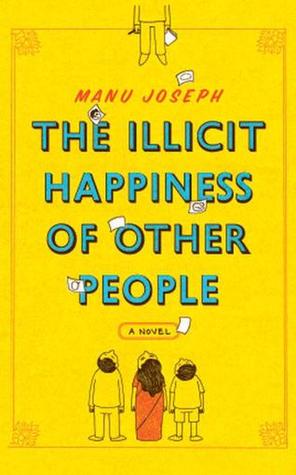The Illicit Happiness of Other People by Manu Joseph is written in the style of Milan Kundera’s The Unbearable Lightness of Being, a Czech novel of existentialism and bohemia before the Soviet invasion. Like Kundera’s work, Joseph’s piece is important. Unlike Kundera’s novel, Joseph’s tale reads lightly, even though much of the drama within is sad. Here’s a bit from the publishers:
A smart, wry work that includes mystery, philosophy, and an unlikely love story, this book addresses many encompassing characteristics of domestic life in southern India, from male-female dynamics to the value of reputation to the overwhelming pressures of the education system.
It has been three years since seventeen-year-old, gifted cartoonist Unni Chacko mysteriously fell from the balcony in his home to his death. His family—father Ousep, a failed novelist, banished journalist, who smokes two cigarettes at once “because three is too much”; mother Mariamma, who stretches the family’s money, raises their two boys, and, in her spare time, gleefully fantasizes about her husband dying; and twelve-year-old, love-struck brother Thoma, who wears his dead brother’s hand-me-downs—have coped by not coping. When the post office delivers a comic drawn by Unni that had been lost in the mail since his death, Ousep ventures on a quest to understand his son and rewrite his family’s story.
Manu Joseph won the 2011 PEN/Open Book Award for his debut novel, Serious Men. A journalist for the International Herald Tribune, Joseph lives in New Delhi…
There’s a sort of tragic humor in the novel that I like. It’s the kind of storytelling that reminds me of Haroun and the Sea of Stories and even Life of Pi. There is a fantastical element to Indian storytelling that appeals to me. I think it shows that fantasy doesn’t have to mean witches, dinosaurs, and flying saucers. I look forward to discovering more Indian writers.
